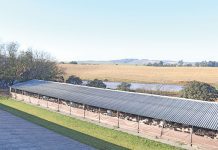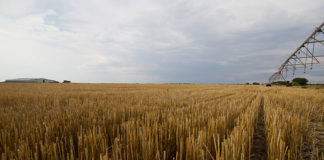How much does drilling a borehole cost?
Why do I know someone who paid only a third of what I have been quoted for mine?
These are common questions. And the answer for each is: “It depends.”
That’s not being evasive. It’s a sign of just how the geology of South Africa varies, ranging from the sedimentary rocks of the Karoo basin to the metamorphosed rocks of the Northern Cape, to the granite intrusions of the Cape Granite Suite. In addition, SA’s groundwater produces varying yields and quality.
It’s therefore to be expected that boreholes will differ in depth, in their construction, and in how they are drilled.
Depth is invariably the main determining factor when it comes to the borehole cost. Most drill quotes are based on metres to be drilled. So whether you are drilling 10m, 100m or 300m will have a significant bearing on the price.
Drill depth in borehole cost
The drill depth will depend on the depth of the aquifer you are targeting. So a good knowledge of the area’s hydrogeology is essential. A sure way to waste money is to drill on and on without knowing exactly what you are targeting. Different drilling methods are required for different formations, and this will affect the borehole cost. In some settings it’s possible to case off the top 6m of unconsolidated material. That is, using a pipe to protect the open hole – and then drill down using air percussion.
This is where the drill hammer breaks the rock, and the chips are blown up out of the borehole using compressed air. In alluvial aquifers, mud rotary drilling uses a drilling mud to keep the sand from collapsing and a rotating bit to bore through the sand.

Where there is deep weathering, or changes in formation competency, or lots of clays, Odex drilling is necessary. This method involves pulling down borehole casing during the drilling process. This keeps the borehole from collapsing, and can also enable you to drill through hard formations.
Construction
Borehole construction is another big contributor to cost. It is very important that a borehole is constructed appropriately. With an alluvial aquifer you will need to choose your gravel pack and slot size correctly to avoid it silting up, while in a competent rock formation you will need to decide carefully whether there is a risk of borehole collapse.
‘Competent’ is relatively brittle, solid strata that deform by faulting, fracturing or folding, rather than flowing under stress, and are more likely to collapse, as noted. ‘Incompetent’ beds deform more readily under stress. As you can imagine, a 100m-deep borehole with just 6m of steel casing at the top will cost far less than a borehole that is fully encased; and steel casing will cost more than PVC.
If the driller needs to bring their drill rig some distance to get to you, the establishment cost may be higher.
Site access can also sometimes pose a problem, further complicating pricing the process.
Understand the price
Some tips to help you with drilling quotes:
- Make sure you understand the items listed. If something isn’t clear – ask for advice.
- Seek out people in the area who have had boreholes drilled. What they tell you can be very valuable in determining borehole cost.
- If you feel a quote is too high, get another one from a different company. Just make sure you’re comparing apples with apples. Check the quoted drill depth, the drill method, and the borehole construction to ensure the quotes are for the same things.
Finally, remember the cheapest option is not always the best option. You get what you pay for, and you want your borehole to last. Make sure you design, drill and construct it so that it does just that, even if it costs a bit more.
Dale Barrow is a hydrogeologist at GEOSS and has managed drilling projects in various settings for farmers and municipalities.
Contact him at 021 880 1079 or [email protected].













